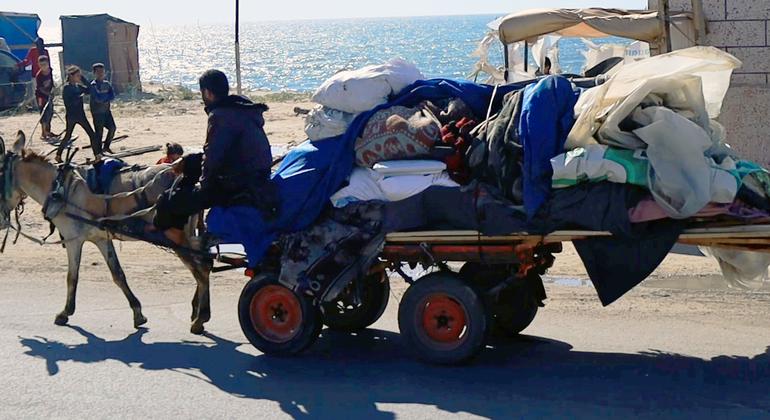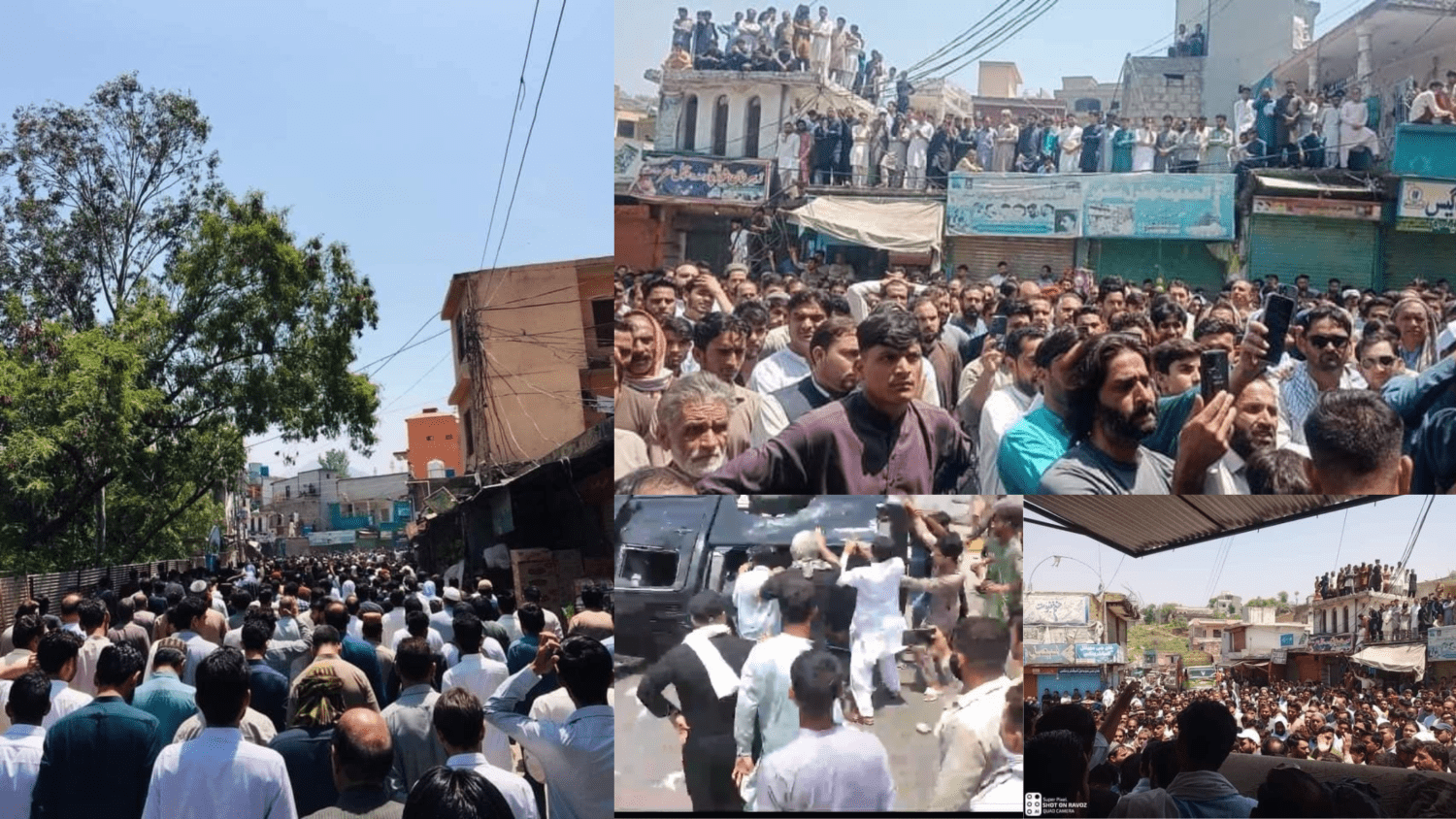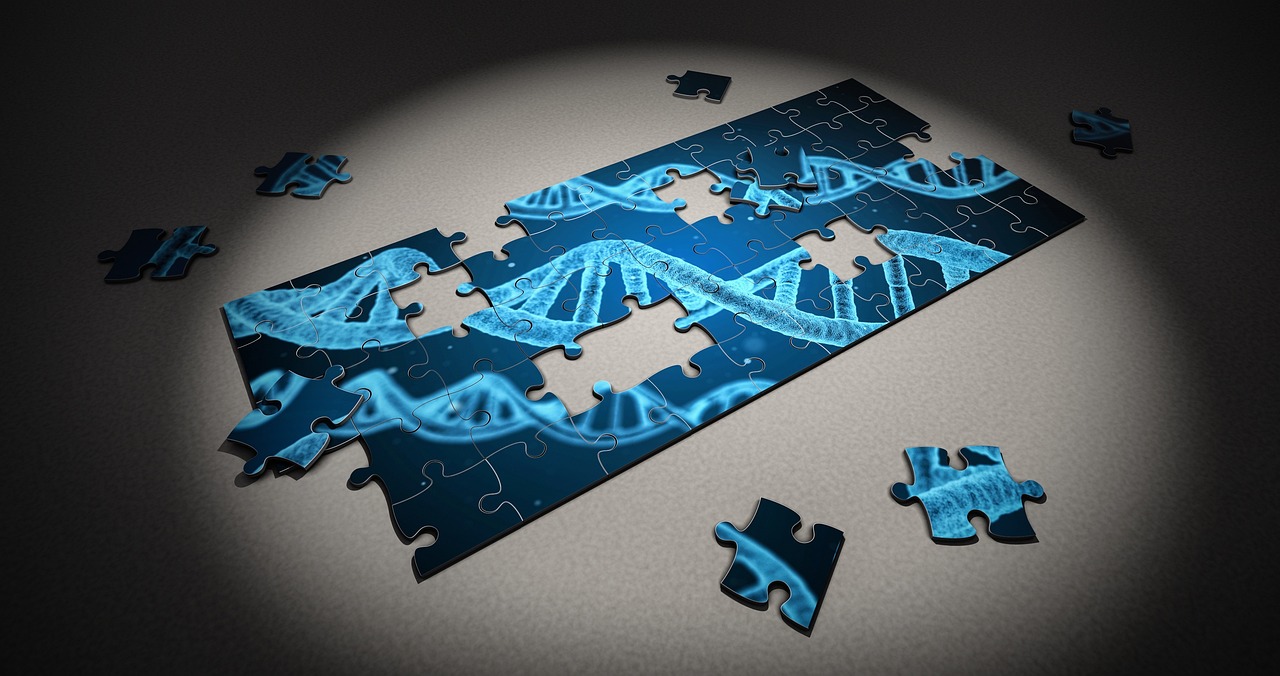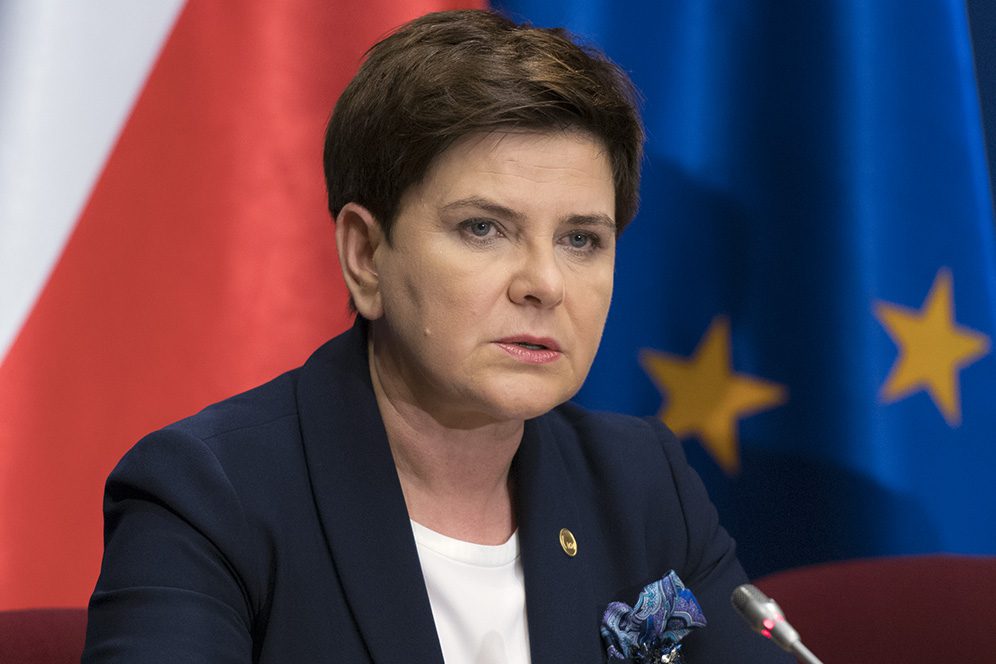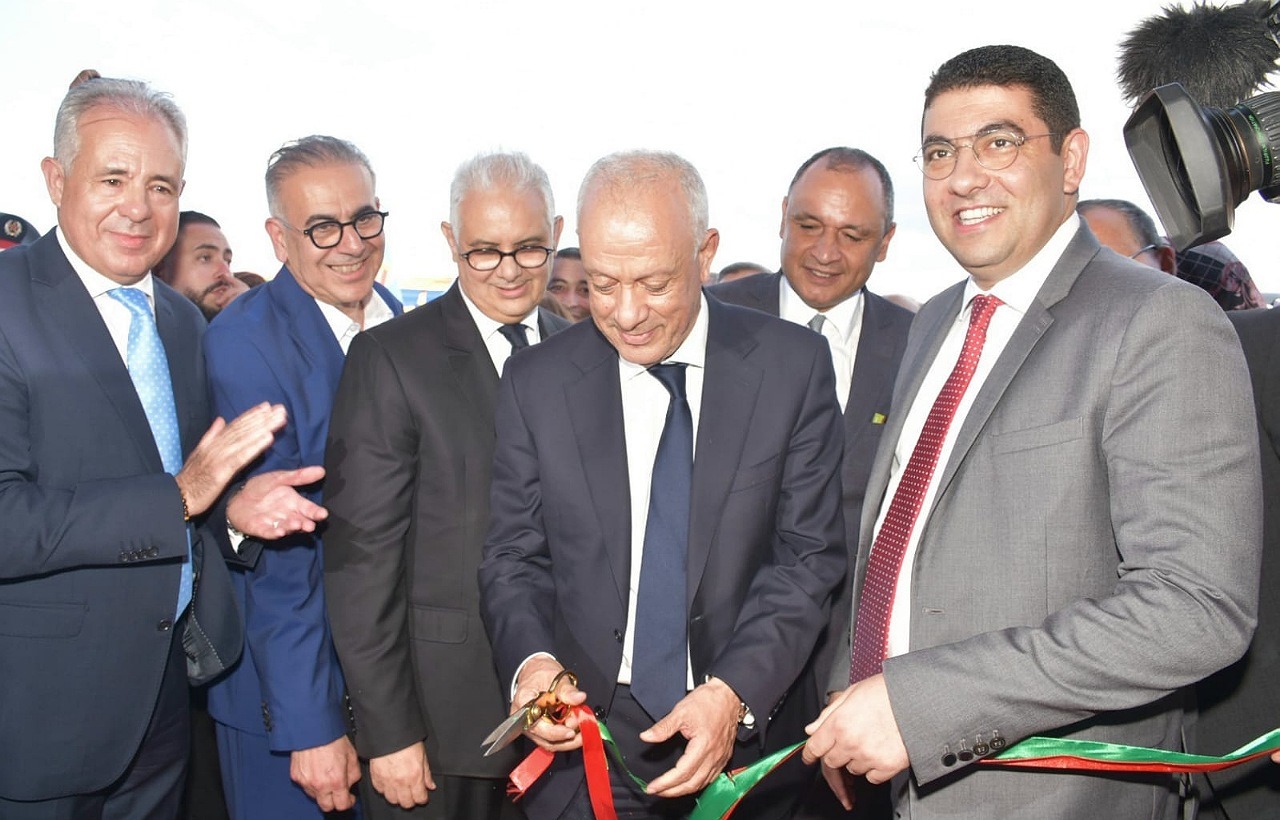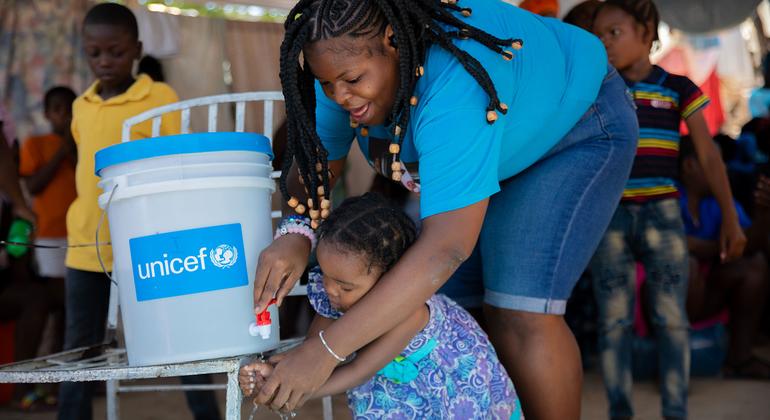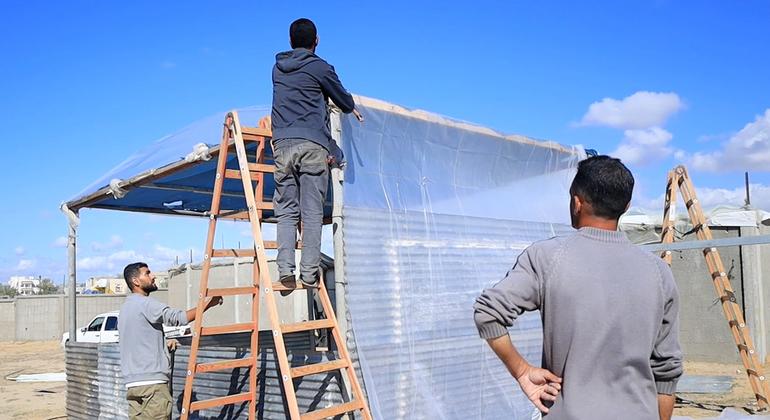“As Israeli Forces bombardment intensifies in Rafah, forced displacement continues,” said the UN agency for Palestinian refugees, UNRWA, in a post on X. “Around 110,000 people have now fled Rafah looking for safety. But, nowhere is safe in the Gaza Strip and living conditions are atrocious. The only hope is an immediate ceasefire.”
In addition to the immediate threat of ongoing military action, UN aid agencies have warned with increasing urgency since Israeli tanks rolled into the Rafah border crossing on Monday that the humanitarian operation across the enclave has been crippled.
“Impossibly, again, it will worsen if humanitarian operations are not revived in the next 48 hours,” said UN Children’s Fund (UNICEF) Senior Emergency Coordinator in the Gaza Strip, Hamish Young.
UN under attack
In a related development, UN Secretary-General António Guterres strongly condemned a new attack by protesters on an UNRWA facility in Jerusalem.
“I condemn the recent attack on @UNRWA’s Headquarters in East Jerusalem. Targeting aid workers and humanitarian assets is unacceptable, and must stop,” the UN chief said in a post on X.
His comments underscored those of UNRWA Commissioner-General Philippe Lazzarini on Thursday who reported that Israeli residents had “set fire twice to the perimeter” of the agency’s headquarters, marking the second time UNRWA had been targeted in a week amid weeks of demonstrations.
Uprooted again
Back in Gaza, the latest images from Rafah provided by UNRWA showed a steady stream of people leaving the east of the city with cars, motorbikes and donkey carts laden with their belongings in response to evacuation orders from the Israeli military.
Most of those displaced are seeking safety in Khan Younis and Deir Al-Balah. But, these areas lack the basic services required to support civilians who need food, shelter and healthcare, aid teams maintain.
Roads to the coastal zone of Al Mawasi, where Gazans have been instructed to move to, “are jammed”, said UNICEF’s Mr. Young. Speaking from Rafah via video-link to journalists in Geneva, he described desperate scenes as families were uprooted once again, with “many hundreds of trucks, buses, cars and donkey carts loaded with people and possessions” continuing to stream out of the southern city.
“People I speak with tell me they are exhausted, terrified and know life in Al Mawasi will, again, impossibly be harder,” he said. “Families lack proper sanitation facilities, drinking water and shelter. People are making improvised toilets by digging holes in the ground around groups of tents. Open defecation is on the rise.”
“One of the fathers told me he had nothing other than bad options to choose from. And as he was telling me where he was going, he started sobbing. Then his children starting crying and then started asking me what to do. It’s just a tragic situation and there’s just nowhere safe in Gaza for children.”
Griffiths call
“Civilians in Gaza are being starved and killed…This is Gaza today,” said the UN’s top aid official, Martin Griffiths.
In a social media post on X, he warned late Thursday that for days, “nothing and no one had been allowed in or out of Gaza.”
The closure of Rafah and Kerem Shalom crossings in southern Gaza – the main entry points for critically needed aid food, water, fuel and medical supplies – “means no aid”, Mr. Griffiths continued.
“Our supplies are stuck. Our teams are stuck,” he said, a message echoed by aid teams whose assessment missions have been cancelled because of a lack of fuel.
Meanwhile, civilians have faced and repeatedly fled intense and daily bombardment and clashes “and we are prevented from helping them”, the emergency relief chief insisted.
Aid stores too dangerous to access
At the same time, the UN World Food Programme (WFP) reported that its main warehouse in Gaza was now out of reach.
“Our main warehouse is now inaccessible. No aid has entered from southern crossings in two days,” said WFP Palestine Country Director ad interim Matthew Hollingworth on X late Thursday.
“Thousands of people are on the move. Only one bakery is still working. Supplies of food and fuel in Gaza will only last one to three days. Without them, our operations will go into standstill.”
Hospital services critical
The outlook is equally dire for the enclave’s remaining medical facilities, warned the UN World Health Organization (WHO), which said that “without fuel, the whole system collapses”.
WHO is responsible for fuel deliveries to all hospitals in Gaza, but it has had to suspend missions to the north so that those in the south can stay open, said spokesperson Dr. Margaret Harris.
“All the things that a hospital does, all the lifesaving treatments no longer can be done, even if you’ve got somebody back from the brink, you’ve operated on them, you’ve put them on a ventilator, the ventilator stops, they no longer breathe.”
The following health facilities are scheduled to run out of fuel within the next 24 hours, the UN aid coordination office, OCHA, said, citing Gazan authorities:
• Five ministry of health-run hospitals
• 28 ambulances (14 Palestinian Red Crescent Society and 14 from the health ministry)
• 17 primary health care centers run by UNRWA and other partners
• Five field hospitals
• 10 mobile clinics which provide immunizations, trauma care and malnutrition services and 23 medical facilities in Al Mawasi
From UNICEF, Executive Director Catherine Russell also warned that services for premature babies risk losing power unless fuel supplies reached Gaza.
“We need fuel to move lifesaving supplies – medicine, treatments for malnutrition, tents and water pipes – as well as staff to reach children and families in need.”
Without fresh aid supplies, children and families face becoming dehydrated or will be forced to drink dangerous water, while sewage treatment centres “will overflow and spread disease further”.
According to UNICEF, approximately 80 babies are born at Emirati hospital every day. But, it “cannot function” without fuel, insisted Mr. Young, who added that pregnant women “are left without options for safe delivery of their newborns. As we have seen in other parts of Gaza over the last seven months, when hospitals run out of fuel, lifesaving equipment such as ventilators and incubators stop working.”
Rising toll
According to the Gazan health authorities, at least 34,900 people have been killed and well over 78,500 wounded during the Israeli bombardment and ground operation in Gaza since 7 October.
Some 1,250 people were killed in Hamas-led terror attacks on southern Israel that sparked the war, with more than 250 taken hostage. Dozens are still being held.
Gaza crossings are ‘aid lifelines’: Rights chief
In a statement later on Friday UN Human Rights Chief (UNHCR) Volker Türk said he disapproved of any hostilities that impact the “entry and distribution of critically needed humanitarian aid” to Gaza.
“The handful of land crossings into Gaza serve as lifelines for the supply of food, medicine, fuel and other necessities that must be allowed to reach the despairing and terrified population,” Mr. Turk said.
He called on all warring parties to “lay down their weapons immediately” to ensure that crossings for civilians and necessary goods and aid will reach people in Gaza with no delay and without risk through military operations.
Security Council calls for independent and immediate investigation into mass graves
Also on Friday, members of the Security Council voiced “deep concern” over reports of the discovery of mass graves, in and around the Nasser and Al Shifa medical facilities in Gaza, where several hundred bodies, including women, children and older persons, were located.
Underscoring the need for accountability for violations of international law, Council members called for “investigators to be allowed the unimpeded access to all locations of mass graves in Gaza to conduct immediate, independent, thorough, comprehensive, transparent and impartial investigations to establish the circumstances behind the graves”.
They also reiterated their demand that all parties “scrupulously comply” with their obligations under international law, in particular the protection of civilians and civilian objects.
Members also reaffirmed the importance of allowing families to know the fate and whereabouts of their missing love ones.
Experts raise concern of threats against ICC staffers and their families
UN independent human rights experts on Friday voiced concern over some US and Israeli statements that threaten retaliation against the International Criminal Court (ICC), its officials and family members.
“At a time when the world should unite to end the terrible bloodshed in Gaza and seek justice for those unlawfully killed, injured, traumatised, or taken hostage, since October 7, it is distressing to see State officials threatening to retaliate against a Court for pursuing international justice,” the experts said.
The Office of the Prosecutor (OTP) condemned statements made on Friday, May 4, regarding threats to retaliate against the court. It reminded everyone that per Article 70 of the Rome Statute, any threats of reprisal could be considered a crime against the administration of justice.
“Threats of retaliatory action violate human rights norms against attacks on justice personnel and exceed the accepted limits of freedom of expression. We call on all States to respect the Court’s independence as a judicial institution and protect the independence and impartiality of those who work within the Court.”



